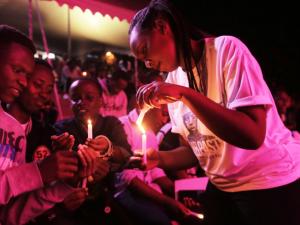
Six ways to commemorate during COVID-19 lockdown
As Rwandans pause to commemorate the 1994 Genocide against the Tutsi, this year, there are changes to how people will remember the victims of the Genocide due to the COVID-19 pandemic and the resultant lockdown.
The usual commemoration discussions at village level and elsewhere that attract big gatherings during this upcoming period, walks to remember and night vigils will not be held where they used to be.
Timelines have not changed much. The initial official commemoration week, as usual, starts from April 7 until 13. The regular 100 days of commemoration will end in July.
Should the pandemic subside at any point during these 100 days, and the government announces an end to the lockdown, we shall carry on as usual. We will, for example, visit the Genocide Memorial in Bisesero in end June, if the lockdown has been called off by then, and lay wreaths and so on and so forth.
In the meantime, while we are still in the lockdown, here are some six ways you can commemorate, as an individual or as a family at home, as we continue to stay home and abide by our government’s advisory on preventing the spread of the COVID-19 pandemic.
- You may not be able to participate in walks to remember and other such commemoration activities but you can, on your own, as a conscious human being, light a remembrance candle and observe a minute of silence. Honour our loved ones. Keep the memory. Each and everyone of us should be responsible. Do what’s right.
- The CNLG announced that all the talks will be broadcast on national TV and radio as well as by other media houses. All talk shows will be aired daily from 3 to 4:30 PM. Follow these talk shows, and interact - call in with questions or ideas - where need be, since this will be most welcome.
- Listen to commemoration songs on radios and elsewhere.
- Watch commemoration theme movies on TV, and others you may have at home. If you have watched them before, watch them again and have a discussion with family at home. Or read books about the Genocide against the Tutsi.
- There will be short special messages by some key personalities on TV and other media, including social media. Follow these messages. Learn from them, and remember.
- The focus during this year’s commemoration will be on our youth and memory. The youth own this nation’s future. If you are older, engage them positively. Make an effort to help very young children who might not grasp what happened during the Genocide understand.
The country’s young generation needs to understand the history of the Genocide against the Tutsi - the roots and causes - in depth so that they can ably counter or fight Genocide ideology and denial. A talk show particularly focused on the youth is scheduled on April 8. Don’t miss it.
And, it is worth understanding that 26 years after the 1994 Genocide, there are Rwandans who continue to struggle with trauma. Should a case occur near you, please be kind, and prudent enough, to quickly call 114 - the Rwanda Biomedical Center’s toll-free number, for help. That is the number CNLG has approved for use during this period.
